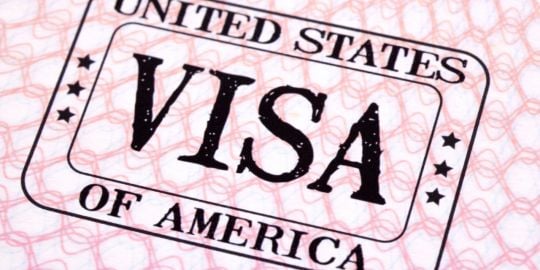Bonjour à tous,
Je souhaite partir à Austin au Texas, ma cousine m'y attends avec son entreprise de pâtisserie Française. Je souhaite la rejoindre pour travailler avec elle et améliorer son business.
Je suis titulaire d'un BTS hôtellerie restauration, d'une MC sommellerie et d'un BAC +4 en école de commerce.
J'ai donc pensé au VISA H1B mais il demande un diplome BAC + 4 là ou j'ai simplement mon bulletin de note qui valide ma 4em année mais pas de diplôme (c'est comme ça dans certaines écoles de commerce, le programme est en 5 ans si l'on ne fait pas les 5 ans on n'obtient pas le diplôme Master.
J'ai également pensé au VISA J-1 Trainee mais cela fait plus d'un an que j'ai quitté l'école donc je ne pense pas y avoir droit.
Enfin le VISA investisseurs ou l'on demande 150 000€ à investir que je n'ai pas.
Voilà je ne sais donc pas quelle VISA demander et pourtant ma situation me semble bien simple avec une cousine prête à me faire un contrat de travail!
Pouvez-vous m'aider?
Quel VISA choisir pour travailler ( VISA H1B impossible)
Bonjour,
Déjà ce n'est pas toi qui demande un visa mais l'employeur qui te sponsorise.
Ta cousine est française ? C'est elle qui détient la boîte ? Si oui, regarde du côté du visa E2 Employé.
Sinon regarde du côté du visa J1 malgré tout.
"Déjà ce n'est pas toi qui demande un visa mais l'employeur qui te sponsorise.
Ta cousine est française ? C'est elle qui détient la boîte ? Si oui, regarde du côté du visa E2 Employé.
Sinon regarde du côté du visa J1 malgré tout."
Merci pour ta réponse.
Effectivement le visa E2 employé essentiel correspond à mon profil. Pourrais-tu m'en dire plus sur les démarches à suivre pour l'obtention de ce visa?
De plus connais-tu les critères d'éligibilité pour que l'entreprise puisse faire bénéficier du visa E2 employé essentiel?
Pardon ça fait beaucoup de questions!
Bonjour, quel poste vas-tu te proposer exactemement? Si c'est pour etre patissier par exemple, il faudra avoir un diplome et les convaincre qu'ils n'ont pas reussi a trouver une personne aux USA avec les competences requises. A ta cousine de faire les demarches et de monter le dossier. Un avocat peut l'aider. Si elle a un E2 investor, voici ce qui se trouve sur le site officiel https://www.uscis.gov/working-united-st … -investors
General Qualifications of the Employee of a Treaty Investor
To qualify for E-2 classification, the employee of a treaty investor must:
Be the same nationality of the principal alien employer (who must have the nationality of the treaty country)
Meet the definition of “employee” under relevant law
Either be engaging in duties of an executive or supervisory character, or if employed in a lesser capacity, have special qualifications.
If the principal alien employer is not an individual, it must be an enterprise or organization at least 50% owned by persons in the United States who have the nationality of the treaty country. These owners must be maintaining nonimmigrant treaty investor status. If the owners are not in the United States, they must be, if they were to seek admission to this country, classifiable as nonimmigrant treaty investors. See 8 CFR 214.2(e)(3)(ii).
Duties which are of an executive or supervisory character are those which primarily provide the employee ultimate control and responsibility for the organization's overall operation, or a major component of it. See 8 CFR 214.2(e)(17) for a more complete definition.
Special qualifications are skills which make the employee's services essential to the efficient operation of the business. There are several qualities or circumstances which could, depending on the facts, meet this requirement. These include, but are not limited to:
The degree of proven expertise in the employee's area of operations
Whether others possess the employee's specific skills
The salary that the special qualifications can command
Whether the skills and qualifications are readily available in the United States.
Knowledge of a foreign language and culture does not, by itself, meet this requirement. Note that in some cases a skill that is essential at one point in time may become commonplace, and therefore no longer qualifying, at a later date. See 8 CFR 214.2(e)(18) for a more complete definition.
Period of Stay
Qualified treaty investors and employees will be allowed a maximum initial stay of two years. Requests for extension of stay may be granted in increments of up to two years each. There is no maximum limit to the number of extensions an E-2 nonimmigrant may be granted. All E-2 nonimmigrants, however, must maintain an intention to depart the United States when their status expires or is terminated.
An E-2 nonimmigrant who travels abroad may generally be granted an automatic two-year period of readmission when returning to the United States. It is generally not necessary to file a new Form I-129 with USCIS in this situation.
Terms and Conditions of E-2 Status
A treaty investor or employee may only work in the activity for which he or she was approved at the time the classification was granted. An E-2 employee, however, may also work for the treaty organization's parent company or one of its subsidiaries as long as the:
Relationship between the organizations is established
Subsidiary employment requires executive, supervisory, or essential skills
Terms and conditions of employment have not otherwise changed.
See 8 CFR 214.2(e)(8)(ii) for details.
USCIS must approve any substantive change in the terms or conditions of E-2 status. A “substantive change” is defined as a fundamental change in the employer's basic characteristics, such as, but not limited to, a merger, acquisition, or major event which affects the treaty investor or employee's previously approved relationship with the organization. The treaty investor or enterprise must notify USCIS by filing a new Form I-129 with fee, and may simultaneously request an extension of stay for the treaty investor or affected employee. The Form I-129 must include evidence to show that the treaty investor or affected employee continues to qualify for E-2 classification.
It is not required to file a new Form I-129 to notify USCIS about non-substantive changes. A treaty investor or organization may seek advice from USCIS, however, to determine whether a change is considered substantive. To request advice, the treaty investor or organization must file Form I-129 with fee and a complete description of the change.
See 8 CFR 214.2(e)(8) for more information on terms and conditions of E-2 treaty investor status.
A strike or other labor dispute involving a work stoppage at the intended place of employment may affect a Canadian or Mexican treaty investor or employee's ability to obtain E-2 status. See 8 CFR 214.2(e)(22) for details.
Family of E-2 Treaty Investors and Employees
Treaty investors and employees may be accompanied or followed by spouses and unmarried children who are under 21 years of age. Their nationalities need not be the same as the treaty investor or employee. These family members may seek E-2 nonimmigrant classification as dependents and, if approved, generally will be granted the same period of stay as the employee. If the family members are already in the United States and are seeking change of status to or extension of stay in an E-2 dependent classification, they may apply by filing a single Form I-539 with fee. Spouses of E-2 workers may apply for work authorization by filing Form I-765 with fee. If approved, there is no specific restriction as to where the E-2 spouse may work.
As discussed above, the E-2 treaty investor or employee may travel abroad and will generally be granted an automatic two-year period of readmission when returning to the United States. Unless the family members are accompanying the E-2 treaty investor or employee at the time the latter seeks readmission to the United States, the new readmission period will not apply to the family members. To remain lawfully in the United States, family members must carefully note the period of stay they have been granted in E-2 status, and apply for an extension of stay before their own validity expires.
Concernant le visa E2 pour les employés, je pense que c'est possible seulement si ta cousine a elle même un visa E2 investor.
Sinon comme dit Ben, il te reste l'option du visa J.
Oui tu peux faire le J1, mais le Trainee et non pas l'Intern, par contre tu seras limité à 12 mois sans possibilité de renouvellement.








